Hello,
That’s a pretty significant injury. It looks like the hip is dislocated and the femur is broken at the knee. For the hip you could talk about an FHO surgery as a good option to keep the leg, and stay functional without pain, but the knee needs to be addressed. I’m not sure how to manage that without help from a surgeon.
I always recommend a second opinion before making the decision to amputate but this has to be done in person with a vet. It cannot be done safely online via a photo alone.
Good luck.






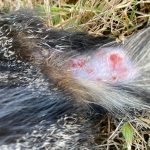
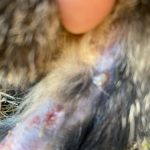
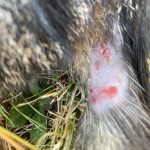
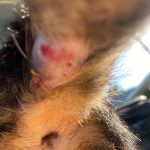
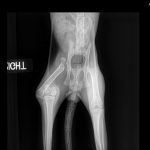
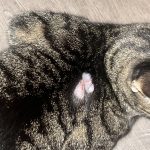
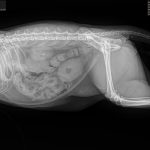
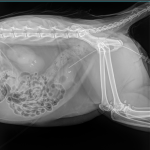
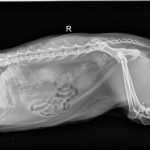
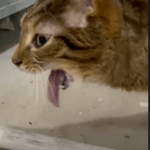

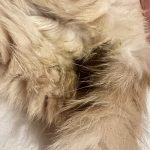


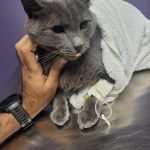

Hello,
Thank you for taking care of this kitty. It sounds like he really needs to have a friend in his corner.
I think that a few things are really important to discuss. One, although the skin wounds are concerning I think that too often pet parents are focused on an exterior (often transient and benign things), and forget about all of the immensely important things going on in the inside. Like, is this cat spayed, neutered or vaccinated? These are the absolute foundations for a healthy pet.
I also think that your vet can help you understand if this is a parasite issue like fleas?
I wish I could tell you that this is and give you the answer to help it get better, but, medicine isn’t just looking at a picture. It is about helping the pet from the inside and out.
I think that you need help from a vet. I think this cat needs to be spayed/neutered and vaccinated. I also think they need an antibiotic and a product to help with fleas.
Good luck.
I will search for a Vet office and bring him in for some treatment or an ER clinic for results. Glad I’m he does not have flees presently, as I comb him and check with flea combs. Those things are terrible as for infestations go and I love Food Grade DiatomaceousEarth for getting rid of that mess. My neighbor is a farmer who lives offsite and does not visit, more or less he picked up this cat some years ago and it only gets put in doors when they spray chemicals on the crops. I was worried with cold weather approaching and any injuries present much less bald spots like this. They either seen this on his tail by now or would have got him help. In his words he is just a friendly stray, pretty sure he is fixed but I will bring him in and get everything covered. He will be okay though I will make sure of it just wanted to get some insight on this. Could be days or sometimes a week or two before I see him day or night, but I will always watch for him and over him. Thanks again for your time and care you give in this field. The donation links did not work for me paypal related / sign up email Have a great day, take care.